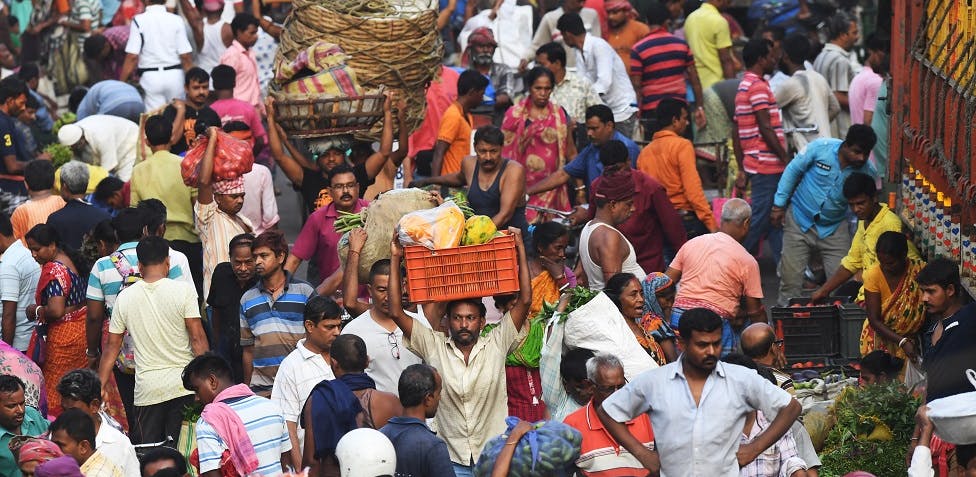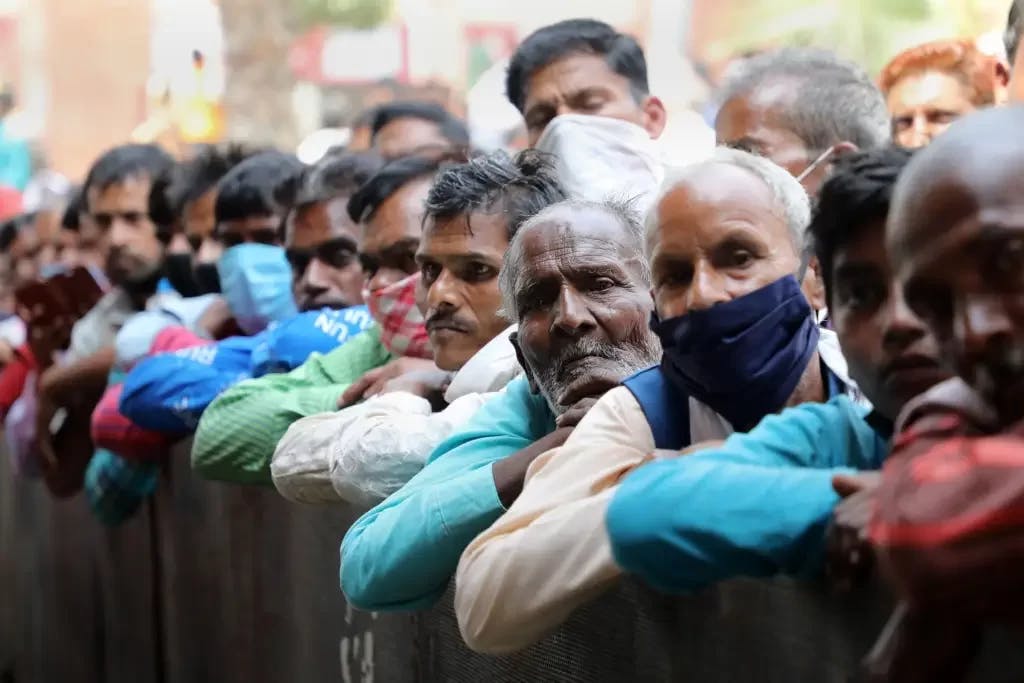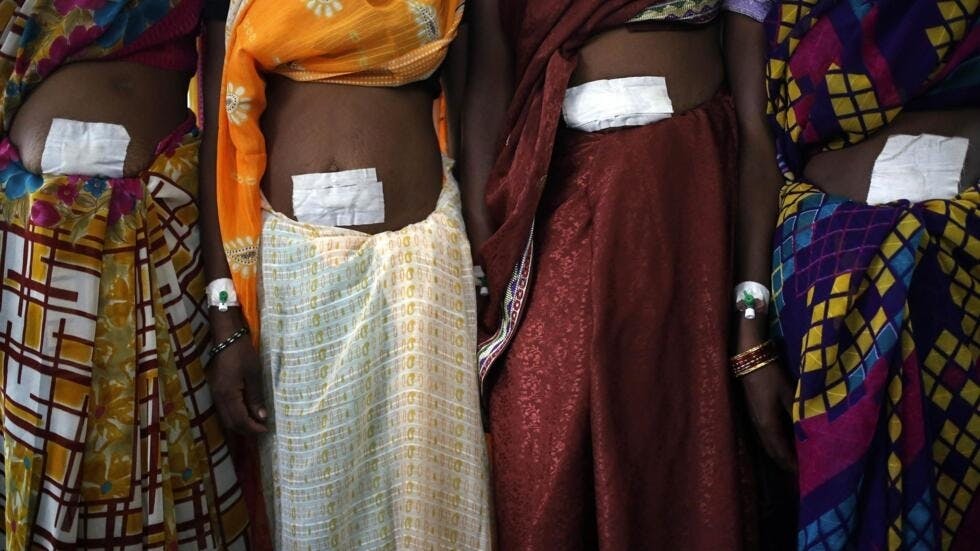India's Lottery Influences Population Control in the Country: A Deep Analysis
With a population surpassing 1.3 billion people, India has turned to incentivizing voluntary sterilization through a lottery system; let's understand the case.
The Lottery House
tags:
Índia
lottery

The Role of the Indian Lottery in the Country's Demographic Regulation

India, with its rich cultural, historical, and geographical diversity, is the second most populous country in the world, with over 1.3 billion inhabitants. However, overpopulation has become a growing challenge that impacts every aspect of life in the Indian nation. To address this complex issue, the Indian government has adopted a unique and controversial approach: a lottery that encourages voluntary sterilization. In this article, we will delve deeper into this innovative initiative, its implications, and the public's reaction to this population control strategy.
Overpopulation in India: A Growing Crisis

Overpopulation is a chronic problem in India. The nation, with its rising birth rate and improvements in life expectancy, faces significant challenges related to providing basic resources such as water, food, and access to healthcare and education for its rapidly growing population.
The impact of overpopulation extends to various areas of Indian life. Air and water pollution, housing shortages, and pressure on natural resources are just a few of the consequences of this uncontrolled demographic growth. The quest for jobs and educational opportunities also creates additional strain on the system, making the issue of overpopulation even more complex.
The Innovative Strategy: The Sterilization Incentive Lottery

To address the issue of overpopulation, the Indian government launched an innovative initiative: voluntary sterilization incentivized through a lottery. This unique approach aims to encourage citizens to make informed decisions about the size of their families and contribute to the country's population control.
How the Lottery Works

The mechanics of the lottery are relatively simple. Indian citizens who opt for voluntary sterilization receive a financial incentive of 600 rupees, a significant amount in a nation where the cost of living is substantially lower than in many parts of the world. In addition to this monetary incentive, these volunteers are automatically entered into a draw that offers various prizes, such as refrigerators, washing machines, TVs, and even a brand-new car.
Requirements and Restrictions
To participate in the program, volunteers must meet certain criteria set by the government. They must have at least two children and obtain medical approval for sterilization. This ensures that decisions are made based on medical information and in compliance with regulations.
Implications and Controversies
The initiative of the birth control lottery in India has generated intense debates, both within the country and internationally. Opinions vary, and the implications of this unique strategy have been examined from various perspectives.
Supporters of the Initiative
Those who support the initiative argue that financial incentives and prizes are an effective way to encourage voluntary sterilization. They believe that this approach allows families to make informed decisions about the size of their families and contribute to population control without resorting to coercive methods. Additionally, the offered prizes can significantly improve the quality of life for families in need.
Supporters also emphasize that participation is voluntary, and the initiative does not involve any form of coercion. It is a choice made by the citizens themselves based on their values, needs, and circumstances.
Critiques and Concerns
However, the initiative also faces a range of critiques and concerns. A central point of controversy revolves around informed consent and the social or economic pressure that can influence citizens' decisions. Some argue that in a country where access to education and information is not equally distributed, choices may not be truly informed.
Furthermore, there are ethical concerns about the use of incentives to promote sterilization and whether this in any way infringes on people's reproductive rights. The issue of individual autonomy regarding family planning decisions is a subject of ongoing debate.
Public Reaction
The public's reaction to the birth control lottery initiative in India has been varied. Many citizens view the financial incentives and prizes as a welcome opportunity, especially in a country where poverty is widespread. For many, the offered prizes can make a significant difference in their lives.
However, there have also been protests and criticisms, especially from human rights groups and non-governmental organizations questioning the ethics of the initiative. The struggle for reproductive rights and access to contraception has played a significant role in the critiques.
Contextualizing Overpopulation in India

To understand the depth of the overpopulation challenge in India, it's important to consider some additional data and context.
Cultural and Social Factors
Culture and tradition play a significant role in the issue of overpopulation in India. In many parts of the country, having a large family is seen as a blessing, and social pressure to have children is high. These cultural influences can affect family planning decisions.
Medical Advances
Advancements in healthcare, such as improvements in medical care and prenatal care, have increased infant survival rates in India. While this is a positive achievement, it has also contributed to population growth.
Awareness Programs
The Indian government has launched various family planning awareness programs over the years. However, the effectiveness of these programs has been uneven due to challenges like illiteracy and regional inequalities.
Regional Inequality
India is a vast and diverse country, and the issue of overpopulation varies from one region to another. Some areas are more burdened than others, making birth control a complex and multifaceted issue.
The Need for Ongoing Assessment
As the Indian government continues to seek ways to balance population growth with the quality of life for its citizens, it's important that the lottery initiative undergoes rigorous evaluation. Long-term results, the impact on people's lives, and the overall effectiveness of the strategy should be continuously monitored and reassessed.
Conclusion
The birth control lottery initiative in India is an intriguing example of an innovative approach to addressing one of the country's most pressing problems: overpopulation. While some praise the creativity of the Indian government in tackling this issue, others raise concerns about ethics, informed consent, and social pressure.
The debate over balancing individual autonomy and birth control, along with the struggle for reproductive rights, will continue to shape this complex issue in India. As the government seeks solutions to overpopulation and its implications, the nation remains at the center of global discussions on family planning and population control. It's important that these discussions be conducted openly and evidence-based so that India can make informed decisions about its demographic future.